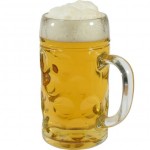Main piece: Schuhplattler is a traditional style of Bavarian folk dance that includes lots of leg movement, stomping, clapping and slapping. The male performers wear Lederhosen and the female performers wear Dirndls. Modern performances of Schuhplattler can be seen at Oktoberfest in Germany, where many in attendance of the wear Dirndls and Lederhosen – a very good look. Schuhplattler dancers may also play the accordion in their performances, which is a nice addition.
Context: The informant (BB) grew up in Schlesien (Silesia), Germany and immigrated to the United States when she was 24 in August 1960. BB and her husband, who was from East Prussia (now considered a territory in Poland), started a family of 3 children in Orlando, Florida and ran a greenhouse business until their retirement. BB is a devout Christian with Lutheran roots. She is fluent in both German and English. Our conversation took place by the fireplace in my home in Atlanta. Interestingly, the informant never practiced, performed or watched Schuhplattler in her youth, since the Bavarian dance was more popular in the Southern part of Germany, and she grew up in the Northwest. However, when she immigrated to the U.S. and began attending the American-German society, many young German people were practicing Schuhplattler and putting on shows among their friends. So, she sent her three kids to Schuhplattler practice every weekend and accordion practice for 5 years (and they hated it). BB admires the dance because it was a tradition she wouldn’t have really been exposed to if she had stayed in Northwestern Germany.
Personal thoughts: There is definitely some irony in the fact that immigrating to a new country taught her more about her own country than living there, in some small ways. It goes to show the ways in which folk adapt traditions to new cultures, locations and time periods. Additionally, the Schuhplattler dance is a perfect reflection of the German people and their mindset – disciplined and refined, yet still lively and fun within those constraints. For external reference, see “Kolb, Alexandra. “The Migration and Globalization of Schuhplattler Dance: A Sociological Analysis.” Cultural Sociology, vol. 7, no. 1, 12 July 2012, pp. 39-55. ProQuest 5000. Accessed 20 Apr. 2019.)

